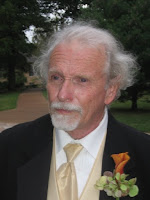by Richard Upchurch - The question of what should be taught in our schools is a perennial one, and at some junctures, such as now, because of our state legislature adopting the ban on Critical Race Theory, becomes the focus of controversy. 
Richard Upchurch
I agree with your editorial statement that, "Tennessee public school social studies standards are full of lessons students may not fully learn or appreciate at their young age. Complicated topics including slavery, Jim Crow and the Holocaust are given short shrift because of other competing academic demands." (Tennessean, May 16).
Aside from the issue of whether more time ought to be given to teaching public school students about these complicated topics, you formulate the issue very well, and to elaborate a bit: The issue is particularly difficult because any subject, including social studies, requires not only the selection of facts to be presented, but also deciding which facts, ideas or judgements to emphasize, and crucially what to include and what not to include as context. One might say that the entire idea of education is about not only presenting factual information, but perhaps more importantly is about enabling the enquirer, or student, to see that information in context. You might say that"Social Studies" is not only about what happened and how we know what happened but it is just as much or more about understanding what happened and forming judgements or assessments based on what facts we accept as true.
In History, one might say, judgement always depends on assessing the event or institution in its relation to a larger context. And doing that is indeed a tall order, even for adults who have had the advantage of a purported higher education. In my view that is also why Critical Race Theory, or any other ideology, needs always to be looked at very carefully before we adopt it as a lens for looking at history and at the world around us. Any new way of seeing and presenting history to students may bring out or emphasize what was not brought out before, but always the question must be, does this lens, or this ideology, give us, and students, a fuller and more comprehensive view of the topic than was accessible to us, or to them, before?
Such as, that in neither the Bible nor in major writers throughout history had the institution of slavery been very strongly condemned----or very nearly even condemned at all-----or that the supply of African slaves to the New World (as well as the even larger numbers of them taken to Muslim areas east of Africa) was furnished by Africans themselves. (see The African Americans, by Henry Louis Gates, and The Real History of Slavery, by Thomas Sowell.)
Would such facts be presented to students if standards of Critical Race Theory were adopted by our schools? It seems unlikely to me that they would be taught. It is possible that some changes are needed in standards governing how much information, and what information, is presented to students, but the question should be whether we are able to perceive, and convey to the young, a comprehensive and realistic way of seeing these and other difficult topics of history---not whether information and judgements are in accord with a popular current ideology.
Top Stories




No comments:
Post a Comment